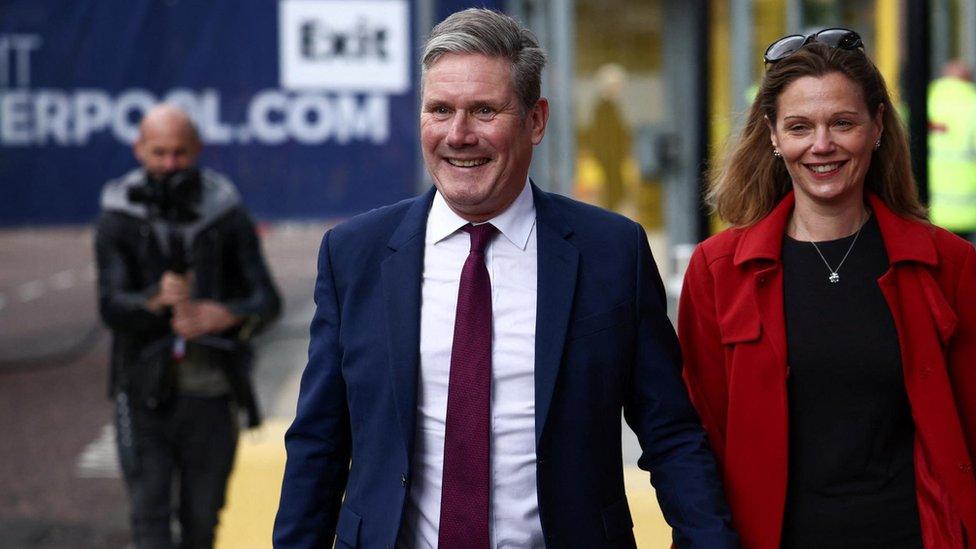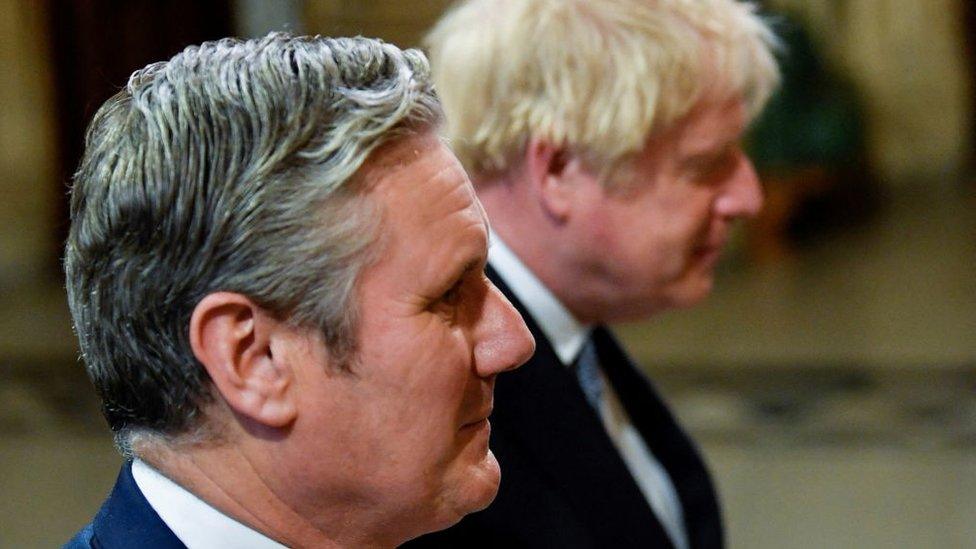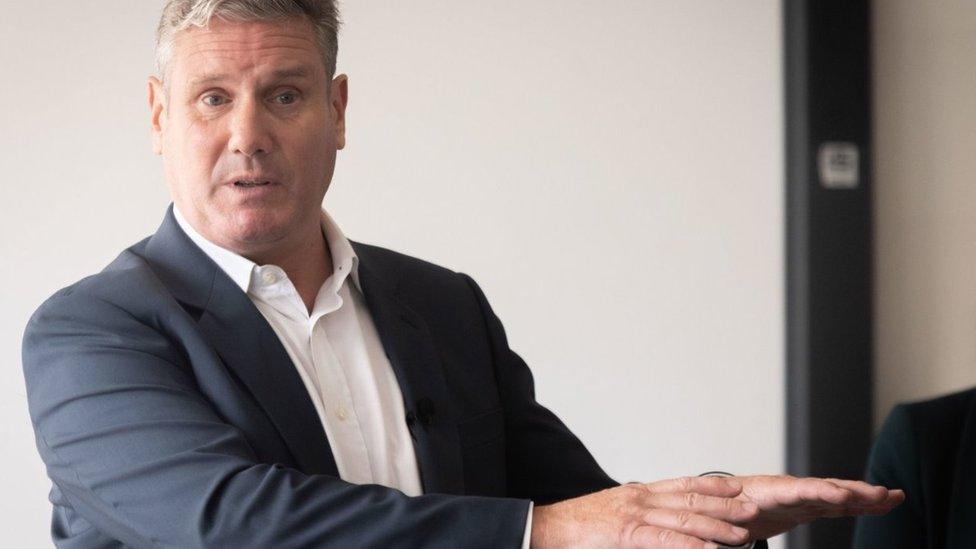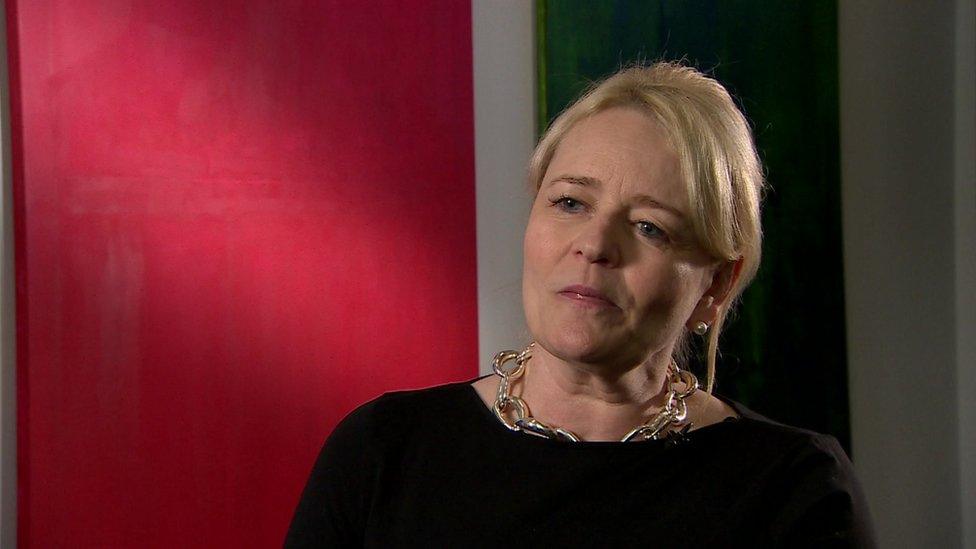Starmer's task is to soothe nerves and grow the economy
- Published

Party conferences are carnivals for the politically obsessed. Those of us whose jobs or passions lead us to follow every twist and turn of politics don't need persuading of their importance.
But the conferences do matter, I promise, for several reasons.
They give our political parties a chance to present themselves and their priorities to the public away from the crowded, noisy benches of Westminster.
Conferences give the party leaders a huge platform to show who they are and what they are about. The pressure is always on for them to inspire, rather than disappoint.
So these events are crucial, and that's why for the next few weeks we'll be talking to the party leaders on our show - starting this week in Liverpool with Labour's Sir Keir Starmer.
The world's changed massively since Labour gathered last year in Brighton. Sir Keir was then spending enormous amounts of political energy trying to get control of his party.
Having won the party leadership pledging unity, at last year's conference he showed himself willing to junk that aim to make headway with the public.
It seemed striking to me at the time when we asked if he favoured unity or winning, that he replied "winning" without hesitation.
Former Labour leader Jeremy Corbyn recalls the “condemnation” he received over his plans to borrow for the UK economy
There are still gripes on the left of the party from those who believed in his predecessor Jeremy Corbyn.
One former member of the party's ruling body said many from Labour's left would be "disgruntled and angry" - even predicting there could be disruption on the conference floor.
Mr Corbyn's in-or-out status still irritates some - a member of the party but still not allowed to sit as a Labour MP.
Activists who signed up in their thousands during the Corbyn era are leaving too. But as Iain Watson has written, Sir Keir arrives on Merseyside with his party sticking together more closely than before.
Then there's the outside world. Sir Keir faces a new opponent in Conservative Prime Minister Liz Truss now that the oxygen-guzzling political personality of Boris Johnson is gone.

This week's guests are Labour leader Sir Keir Starmer and Chancellor Kwasi Kwarteng
On the panel: Iceland supermarkets boss Richard Walker, TUC general secretary Frances O'Grady and economist Gerard Lyons
Watch live on BBC One and BBC iPlayer at 09:00 BST on Sunday 25 September

In theory, there should be more space for Labour's leader to make his case. As one shadow minister put it: "Johnson's personality obliterated everything else in sight - now there is a huge opportunity for his [Starmer's] character to be seen in his own right."
Beyond the personality contest some Labour insiders hope there is more political space too.
There is no doubt that Ms Truss has shifted the government to the right - with Friday's tax-cutting plans comforting some in her party who see a return to "proper Conservatism".
But for others it is a reckless gamble, with one former Tory minister telling me "they didn't fancy a trip to the casino" - warning the changes put their party on the path to defeat.
Labour hope the dramatic shift provides opportunity. One shadow cabinet member told me that with "Brexity Hezza" gone - a term Johnson himself used to draw parallels with the former Tory minister Michael Heseltine - the "opening in the market is bigger and clearer than before".

With Boris "Brexity Hezza" Johnson gone - is there an opening in the market for Sir Keir?
Yet while the goal might be clearer, the scale of the challenges the country faces are bigger too. The pressure is on Sir Keir to show what he would do with all that theoretical space.
What we'll hear at conference this week will, as ever, be carefully designed and carefully choreographed. The task according to one Labour insider is to show the party is "normal". They want voters to think "ooh that sounds like a good idea" when they hear Labour politicians.
But is "normal" enough? There will be promises of radical ideas but Sir Keir's challenge is to present a clear plan that can soothe public nerves and get the economy growing.
With one senior union figure telling me the leader has been "leaden-footed" and "over-cautious" the fear is Labour has not grasped the scale of the challenge the country faces.
Another shadow cabinet member admits there's a concern that the solutions the party has discussed so far have been "fine", but may need to stretch to fill the scale of the country's problems.
For Sir Keir's allies his careful, long-term approach to politics is what bears fruit, saying he is "steadfast and strategic - not impulsive and theatrical".
But Liz Truss is certainly in a hurry to act and the problems the country faces are urgent too.
Events outside and inside Labour mean Sir Keir's job has changed significantly since his party last got together.
But that doesn't mean it has become easier.
Related topics
- Published24 September 2022

- Published24 September 2022

- Published24 September 2022
